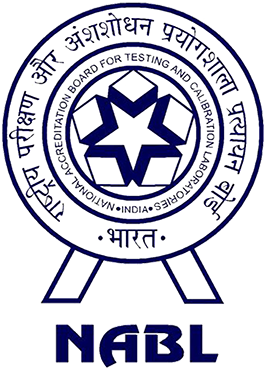LFT - Liver Function Test
Liver function tests (LFTs) are a group of blood tests that measure various enzymes, proteins, and substances produced or processed by the liver. These tests provide valuable information about the liver's health and its ability to perform essential functions. LFTs typically include measurements of enzymes such as alanine aminotransferase (ALT) and aspartate aminotransferase (AST), which indicate liver cell damage or inflammation when elevated. Bilirubin levels are also assessed to evaluate liver function and the excretion of bile. Additionally, tests for albumin and total protein levels help assess the liver's ability to produce proteins essential for blood clotting and overall body function. LFTs are used to diagnose liver diseases such as hepatitis, cirrhosis, and fatty liver disease, monitor treatment responses, and assess overall liver health.
Liver function tests (LFTs) encompass a group of blood tests designed to assess various markers that indicate the health and functionality of the liver. The liver is a vital organ responsible for processing nutrients, filtering toxins from the bloodstream, and producing proteins necessary for clotting and other essential bodily functions. Here’s a comprehensive definition of LFTs:
**Components of LFTs:**
1. **Enzymes:**
LFTs measure the levels of enzymes such as alanine aminotransferase (ALT) and aspartate aminotransferase (AST). These enzymes are normally found within liver cells (hepatocytes) but are released into the bloodstream when liver cells are damaged or inflamed. Elevated ALT and AST levels in the blood indicate liver cell injury and help differentiate between different types of liver diseases.
2. **Bilirubin:**
Bilirubin is a yellowish pigment produced from the breakdown of hemoglobin in old red blood cells. It is processed by the liver and excreted into bile. Elevated levels of bilirubin in the blood can indicate liver dysfunction or obstruction of bile flow, leading to conditions such as jaundice.
3. **Proteins:**
LFTs also include measurements of proteins synthesized by the liver, including albumin and total protein. Albumin is essential for maintaining oncotic pressure in the blood and transporting various substances throughout the body. Decreased levels of albumin can indicate liver disease or malnutrition.
4. **Alkaline Phosphatase (ALP):**
ALP is an enzyme found in various tissues throughout the body, including the liver, bones, and bile ducts. Elevated ALP levels in the blood can indicate liver or bone disease, or obstruction of bile ducts.
**Clinical Significance:**
LFTs are used to:
- **Diagnose Liver Diseases:** They help identify liver conditions such as hepatitis (viral or autoimmune), cirrhosis (scarring of the liver), fatty liver disease, and liver tumors.
- **Monitor Treatment:** LFTs are valuable for monitoring the progression of liver diseases and assessing the effectiveness of treatments, including medications and lifestyle changes.
- **Evaluate Liver Function:** They provide insight into the liver’s ability to metabolize drugs, produce proteins, and detoxify harmful substances.
**Interpretation and Considerations:**
- **Non-Specific Markers:** While LFTs provide valuable information about liver health, abnormal results do not pinpoint the specific cause of liver dysfunction and often require additional tests for diagnosis.
- **Clinical Context:** Interpretation of LFTs considers factors such as patient symptoms, medical history, medications, and other laboratory tests to determine the underlying cause of liver abnormalities.
**Limitations:**
- **Non-Diagnostic:** LFTs alone cannot diagnose specific liver diseases but serve as initial screening tests that guide further evaluation and management.
- **Transient Abnormalities:** Abnormal LFT results can be transient and may not always indicate chronic liver disease.
**Conclusion:**
Liver function tests (LFTs) are essential tools in clinical practice for assessing liver health, diagnosing liver diseases, and monitoring treatment responses. Their comprehensive evaluation helps healthcare providers deliver timely interventions and optimize patient outcomes in various liver-related conditions. Ongoing research continues to refine the utility of LFTs and improve their accuracy in diagnosing and managing liver diseases.
**लिवर फंक्शन टेस्ट (LFTs)** रक्त परीक्षणों का एक समूह है जिसे विभिन्न मार्करों का आकलन करने के लिए डिज़ाइन किया गया है जो यकृत की सेहत और कार्यक्षमता को इंगित करते हैं। यकृत एक महत्वपूर्ण अंग है जो पोषक तत्वों को संसाधित करने, रक्त से विषाक्त पदार्थों को फ़िल्टर करने और थक्के और अन्य आवश्यक शारीरिक कार्यों के लिए आवश्यक प्रोटीन का उत्पादन करने के लिए ज़िम्मेदार है। यहां LFTs की एक विस्तृत परिभाषा है:
**LFTs के घटक:**
1. **एन्जाइम्स:**
LFTs एन्जाइम्स जैसे एलानिन एमिनोट्रांसफरेज (ALT) और एस्पार्टेट एमिनोट्रांसफरेज (AST) के स्तर को मापते हैं। ये एन्जाइम्स सामान्य रूप से यकृत कोशिकाओं (हेपेटोसाइट्स) में पाए जाते हैं लेकिन यकृत कोशिकाओं के क्षतिग्रस्त या सूजन होने पर रक्त प्रवाह में छोड़े जाते हैं। रक्त में ऊंचे ALT और AST स्तर यकृत कोशिका चोट को इंगित करते हैं और विभिन्न प्रकार की यकृत बीमारियों के बीच अंतर करने में मदद करते हैं।
2. **बिलिरुबिन:**
बिलिरुबिन एक पीलापन लिए हुए रंजक है जो पुराने लाल रक्त कोशिकाओं में हीमोग्लोबिन के टूटने से उत्पन्न होता है। इसे यकृत द्वारा संसाधित किया जाता है और पित्त में निकाला जाता है। रक्त में बिलिरुबिन के ऊंचे स्तर यकृत की असफलता या पित्त प्रवाह में रुकावट को इंगित कर सकते हैं, जिससे पीलिया जैसी स्थितियां हो सकती हैं।
3. **प्रोटीन:**
LFTs में यकृत द्वारा संश्लेषित प्रोटीनों का मापन भी शामिल है, जिसमें एल्बुमिन और कुल प्रोटीन शामिल हैं। एल्बुमिन रक्त में ऑन्कोटिक दबाव को बनाए रखने और विभिन्न पदार्थों को शरीर के चारों ओर ले जाने के लिए आवश्यक है। एल्बुमिन के घटे हुए स्तर यकृत रोग या कुपोषण का संकेत दे सकते हैं।
4. **अल्कलाइन फॉस्फेटेस (ALP):**
ALP एक एन्जाइम है जो शरीर के विभिन्न ऊतकों में पाया जाता है, जिसमें यकृत, हड्डियाँ और पित्त नलिकाएं शामिल हैं। रक्त में ALP के ऊंचे स्तर यकृत या हड्डी रोग, या पित्त नलिकाओं में रुकावट को इंगित कर सकते हैं।
**क्लीनिकल महत्व:**
LFTs का उपयोग:
- **यकृत रोगों का निदान:** वे यकृत स्थितियों जैसे हेपेटाइटिस (वायरल या ऑटोइम्यून), सिरोसिस (यकृत का निशान), फैटी लिवर रोग और यकृत ट्यूमर की पहचान करने में मदद करते हैं।
- **उपचार की निगरानी:** LFTs यकृत रोगों की प्रगति की निगरानी और उपचार की प्रभावकारिता का आकलन करने के लिए मूल्यवान हैं, जिसमें दवाएं और जीवनशैली परिवर्तन शामिल हैं।
- **यकृत कार्य का मूल्यांकन:** वे दवाओं के चयापचय, प्रोटीन उत्पादन, और हानिकारक पदार्थों को डिटॉक्सीफाई करने की यकृत की क्षमता में अंतर्दृष्टि प्रदान करते हैं।
**व्याख्या और विचार:**
- **गैर-विशिष्ट मार्कर:** जबकि LFTs यकृत स्वास्थ्य के बारे में मूल्यवान जानकारी प्रदान करते हैं, असामान्य परिणाम यकृत के असफलता के विशिष्ट कारण का संकेत नहीं देते हैं और अक्सर निदान के लिए अतिरिक्त परीक्षणों की आवश्यकता होती है।
- **क्लीनिकल संदर्भ:** LFTs की व्याख्या मरीज के लक्षणों, चिकित्सा इतिहास, दवाओं और अन्य प्रयोगशाला परीक्षणों जैसे कारकों पर विचार करती है ताकि यकृत की असामान्यताओं के अंतर्निहित कारण को निर्धारित किया जा सके।
**सीमाएं:**
- **गैर-निदानात्मक:** LFTs अकेले विशिष्ट यकृत रोगों का निदान नहीं कर सकते हैं लेकिन प्रारंभिक स्क्रीनिंग परीक्षण के रूप में कार्य करते हैं जो आगे के मूल्यांकन और प्रबंधन का मार्गदर्शन करते हैं।
- **क्षणिक असामान्यताएं:** असामान्य LFT परिणाम अस्थायी हो सकते हैं और हमेशा पुराने यकृत रोग का संकेत नहीं देते हैं।
**निष्कर्ष:**
लिवर फंक्शन टेस्ट (LFTs) यकृत स्वास्थ्य का आकलन करने, यकृत रोगों का निदान करने, और उपचार प्रतिक्रियाओं की निगरानी करने के लिए नैदानिक अभ्यास में आवश्यक उपकरण हैं। उनका व्यापक मूल्यांकन स्वास्थ्य सेवा प्रदाताओं को विभिन्न यकृत संबंधी स्थितियों में समय पर हस्तक्षेप और रोगी के परिणामों को अनुकूलित करने में मदद करता है। चल रहे शोध LFTs की उपयोगिता को परिष्कृत करने और यकृत रोगों के निदान और प्रबंधन में उनकी सटीकता में सुधार करने के लिए जारी है।
We provide blood tests in Noida, Gurgaon,
Faridabad,
Delhi,
Indirapuram, Ghaziabad, Greater Noida, and Greater Noida Extension(west).
-
LFT- Liver Function Test
Total Bilirubin
Conjugated Bilirubin
Unconjugated Bilirubin
SGOT ( AST )
SGPT ( ALT )
Alkaline Phosphatase ( ALP )
Total Protein
Albumin
Globulin
A/G Ratio
Gamma G.T
SGOT/SGPT Ratio
















